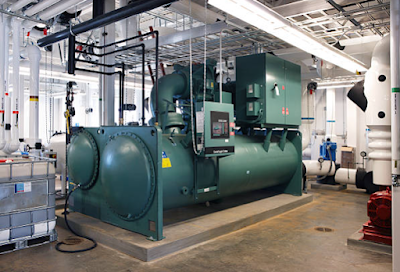About HVAC Chillers
About HVAC Chillers
Chillers are one of the most important pieces of equipment in an HVAC system, and they come in a variety of types and sizes. Choosing the right chiller for your system is essential to ensuring its efficiency and effectiveness.
There are two main types of chillers: air-cooled and water-cooled. Air-cooled chillers are typically smaller and more affordable, making them a popular choice for smaller businesses or buildings. Water-cooled chillers are more expensive, but they're also more efficient and can handle larger loads.
Air-cooled chillers are the most common, and they work by circulating refrigerant through evaporator coils. The coils absorb heat from the surrounding air, and the refrigerant evaporates. This process continues until the desired temperature is reached.
Water-cooled chillers are less common, but they are more energy-efficient. They work by circulating water through cooling coils. The water absorbs heat from the surrounding air, and the refrigerant evaporates. This process continues until the desired temperature is reached.
Hybrid chillers are a newer type of chiller that combines the best features of both air-cooled and water-cooled chillers. Hybrid chillers are more energy-efficient than air-cooled chillers and can operate in a wider range of temperatures.
No matter which type of chiller you choose, it is important to have it serviced regularly to ensure it is operating properly.
Thanks for reading.
Charles Nehme,
HVAC Global consultant and educator.
Services, books, courses, blog, vlog & much more.


%20connected%20to%20a%20central%20AI%20hub%20displ.webp)

Comments
Post a Comment